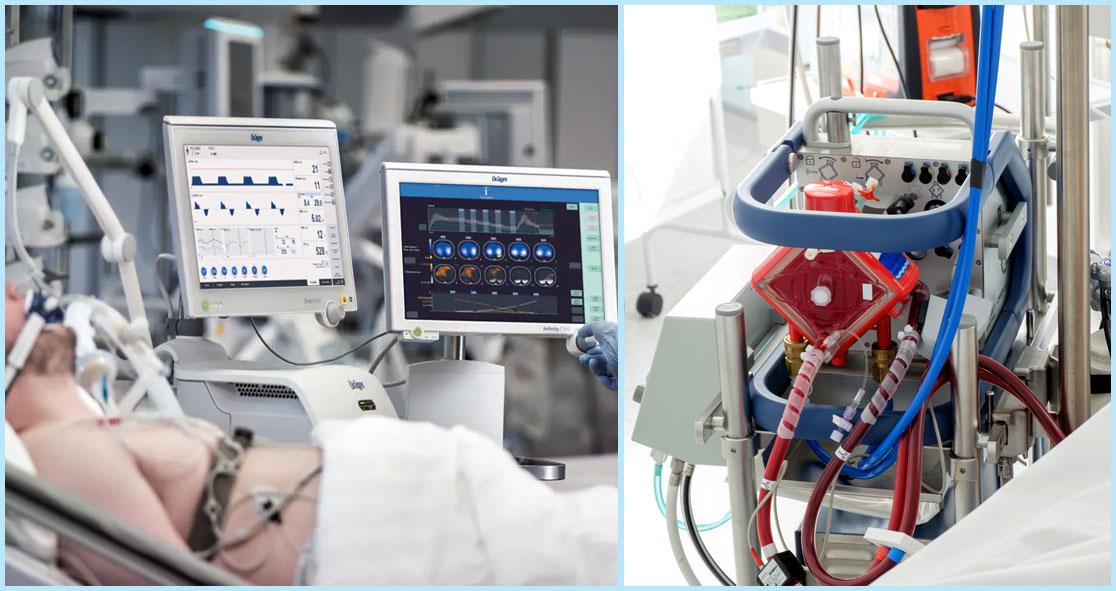A new study, presented last week at the American Association for Thoracic Surgery (AATS) annual meeting, has found that extracorporeal membrane oxygenation (ECMO) and mechanical ventilation have similar outcomes in patients with severe COVID-19 infection.
Also called extracorporeal life support, ECMO is a procedure in which the blood is pumped outside of your body to a heart-lung machine that removes carbon dioxide and sends oxygen-filled blood back to tissues in the body, according to Mayo Clinic.
The study has also shown that COVID-19 survivors, irrespective of the treatment they received, had significant deficits in the ICU. The patients were also suffering problems with physical and mental health for months afterward.
Three months after getting discharged, 50% of the survivors reported symptoms such as cognitive dysfunction, ICU-acquired weakness, and depression, anxiety, or post-traumatic stress disorder (PTSD).
Study author Dr. Lauren Taylor of the University of Colorado School of Medicine told Medscape Cardiology, “We were a multidisciplinary team, a whole variety of people to really track the long-term outcomes for patients who have been critically ill from COVID-19 and survived to hospital discharge.”
She said it is still unclear what happens to those patients after getting discharged, adding that “this is the information we have not had, but when we followed these patients in these multidisciplinary clinics, there was a high level of either physical, emotional, or cognitive dysfunction, even for patients who were well enough to be living at home at the time of follow-up.”
“So, if you have somebody living at home and they come into the clinic, you assume they are functioning pretty well, but when you actually provide them with cognitive and psychological testing and check their physical capabilities, you find a high degree of deficits throughout the entire cohort of this study,” Dr. Taylor explained.
Senior author Dr. Jessica Rove told Medscape Cardiology, said, “We wanted to find out what their hospital course would be like and what cognitive, physical, or emotional deficits might they experience if they survive.”
The researchers found that the survival rate for patients who received ECMO was nearly 69.9%, and for those who were given mechanically ventilated, the rate was 69.6%, a difference of just 0.3%.
Dr. Rove said, “The cognitive, emotional and physical deficits seen in survivors of critical illness from COVID-19 can only be treated if diagnosed.”
“Detrimental effects can potentially be ameliorated with the use of best practices in the ICU,” she added, “maximizing acute rehabilitation services where indicated, and follow up with providers in multidisciplinary post-ICU clinics who can assess and treat these patients to optimize survivorship.” The article was published on Medscape Medical News.























